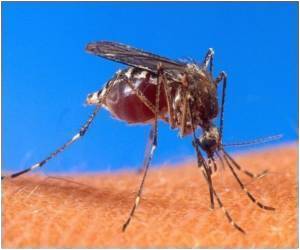Using antibodies and body's natural immune defense may be more effective in treating the infection than developing synthetic drug, which has higher failure rate.
The chikungunya virus is a mosquito-borne virus, which is transmitted by two types of Aedes mosquitoes. It was first identified in Africa 50 years ago, and has been mostly in Asia and occasionally southern Europe. India had suffered a chikungunya outbreak in 2006, where more than 1.5 million cases were reported with Ae.aegypti implicated as the vector. Scientists at Vanderbilt University Medical Center are developing antibodies in order to defeat the chikungunya virus.
With a few ounces of blood from a previously infected person, researchers are finding the chikungunya antibody-secreting cells, and then those cells are processed to retrieve their DNA and antibody genes. Researcher Crowe said, "The team started about two years ago acquiring blood from people who had chikungunya as children and has isolated 3 dozen chikungunya antibodies so far. Amazingly even decades after an infection, people still have cells in their blood making antibodies for chikungunya. Using antibodies for treatment, and the body’s natural immune defense, may be more effective than trying to develop a synthetic drug, which typically has a high rate of failure."
Once the drug is developed and tested in humans, Crowe said, "It would be given to infected people early in the infection, prior to the debilitating joint pain. A vaccine that induces long-term protection could be more convenient and cost-effective in the long run than giving shots of the antibody to try to prevent infection."
The research is published in
Cell Host and Microbe.Source-ANI











